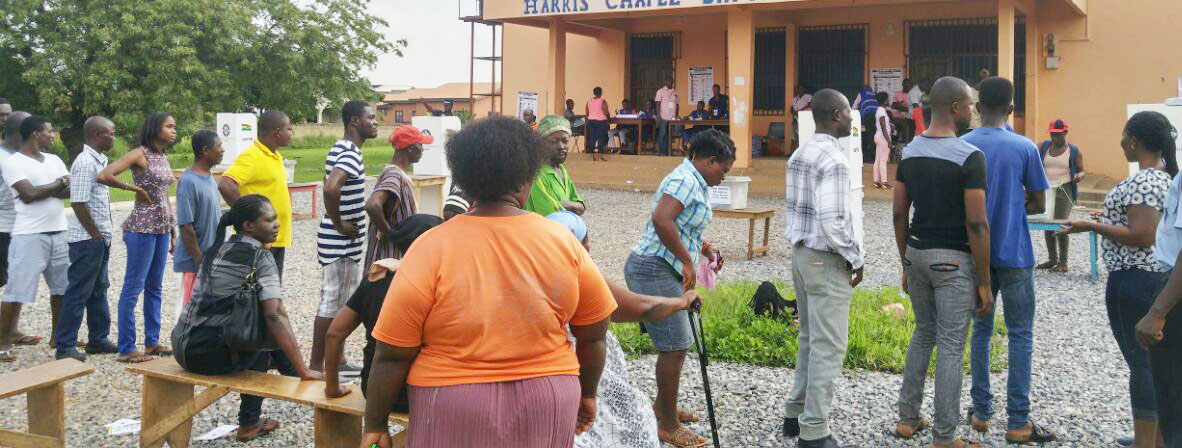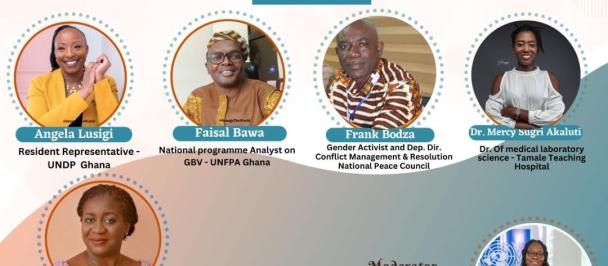By Jennifer Asuako, Gender Analyst, UNDP Ghana
Supporting more women into decision making during this year’s election in Ghana and beyond would help to reverse the currently low levels of women’s participation and representation in political decision-making processes and in other spaces at all levels.
As the country goes to the polls on December 7th 2020, this is a prime opportunity for citizens to contribute towards a more inclusive and sustainable democracy in Ghana. This builds on the positive record of seven successive and generally peaceful elections that have culminated into three successful transfer of power from one party to another since 1992. Supporting more women into decision making during this year’s election and beyond would help to reverse the currently low levels of women’s participation and representation in political decision-making processes and in other spaces at all levels.
While women constitute more than half of the country’s population (51.2%), they represent only 13.8% of members of the national parliament, and constitute less than 30% of ministers, members of the Council of State, heads of public institutions and boards. The numbers are even lower at the local level. For example, the number of women elected and appointed to Assemblies continue to decline over the years; with 10 percent in 2006, to 6 percent in 2010 and 5.4% in 2015.
As Ghana is touted as a model of democracy and good governance in Africa, leadership in this area could help to harness the power of diversity in building inclusive democracies across the continent. According to the Africa Human Development Report (2016), promoting women’s political voice and leadership will help to drive gender equality and women’s empowerment and accelerate the achievement of all the sustainable development goals. The United Nations Sustainable Development Goals (SDGs) 5 acknowledges this fact and therefore has a target to “ensure women’s full and effective participation and equal opportunities for leadership at all levels of decision making in political, economic and public life”.
There is evidence that having more women in public and private decision making increases the general level of public sector effectiveness and accountability in a country. This is particularly pertinent as the country seeks to respond and recover from the impact of COVID-19. Women are often dynamic leaders of change, who galvanize women and men to get involved, to claim their rights, and strengthen their communities to be resilient.
Unfortunately, there are still many barriers to overcome to enhance women’s participation in decision-making. The low levels of women’s participation in leadership is often attributed primarily to patriarchy or male dominance. This is a key aspect of the Ghanaian social system in which the woman’s role and status are relatively recognised to be inferior to those of the man in almost all aspects of social, political and economic life. Custom, law and even religion have also been used to rationalize and perpetuate these differential roles to the extent that some women themselves seem to have accepted and internalized them. Other factors include limited knowledge and prioritization of Gender Equality in the leadership or governance architecture, increasing cost of doing Politics in Ghana and reduced advocacy by women’s groups and gender advocates due to limited funding and resources.
There is now an opportunity to implement the existing legal frameworks of the country that give equal opportunities for both men and women to register to vote, to exercise their franchise, and to stand to be elected for either as presidential candidates, members of Parliament or Assembly representatives in both local and national government structures. We recognise efforts by present and past governments to close the gender gap in decision making and leadership. However only modest gains have been achieved.
Women participation in decision making is not just a right, but also key to sustainable development. In a democracy, it is important that every part of the population is equally represented. Having both men and women involved in decision-making broadens the perspectives, increases creativity and innovation, diversifies the pool of talents and competences, reduces conflicts, and improves the process of decision-making. Indeed, women’s participation in decision making in general has benefits not only to women but to the general society as a whole.
Now is the time to encourage more women in decision making as they prioritise policies that improve lives for everyone including quality education, health, housing and social justice. Women in leadership are also considered to adopt more empathetic, collaborative and consensus building leadership styles that are key to inclusive national progress. Evidence from across Africa shows that having more women as part of peacebuilding and conflict resolution efforts also contributes to more lasting peace. As they pay closer attention to people’s needs, they are inclined towards conflict prevention and collaborative solutions.
There is significant value therefore, in bringing more women around the decision-making table. This is why UNDP since 2013 has supported processes for the development of an Affirmative Action Bill and the development and launch of Ghana’s Second National Action plan this year (GHANAP II) 2020 to facilitate the implementation of UN Resolution 1325, which prioritizes women’s role in conflict resolution and peacebuilding. UNDP is pleased to continue to engage with all key stakeholders to ensure women’s equal participation in decision making across the country.

 Locations
Locations


